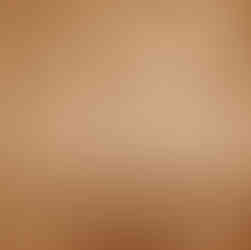Using the Crying Statue of Liberty Ring Top Die or Pressing you can make a set of ring tops. Here's a quick tutorial to walk you through the steps!
From start to finish Metal Maven was able to make a ring top in less than 30 minutes.
The Rolling Mill Component Die provides you with 6 ring top designs on a 2-1/2" X 2-1/2" piece of metal that you will roll using your rolling mill.
The pressing provides you with 6 ring tops on a 2-1/2" X 2-1/2" piece of metal.
MARKING THE COMPONENTS.
Metal Maven used a scrap piece of 20 gauge copper to make a template. You can make one by putting a piece of copper into your Pepe Oval Disc Cutter 25mm X 18mm slot and punching out an oval. Then use the outline of the cutout shape to center over the designs and mark the oval shape on your pattern sheet using a fine tip sharpie marker. Repeat for all the components.

After marking an oval around each component, mark dividing lines between the ovals.

CUTTING THE COMPONENTS
Use a guillotine shear to cut on the marked lines.
If you don't have a guillotine shear, use a jeweler's saw to saw along the lines.
Metal Maven Tip: I use a Saw Blade Size of #2/0 when sawing 20-gauge metal, a #1/0 saw blade when sawing 18-gauge metal and a #1 saw blade when sawing 16-gauge metal. Check out this saw blade specification chart on Rio Grande's website for recommended Saw Blade Sizes.

PUNCH OUT THE COMPONENT
Turn your disc cutter upside-down before inserting your metal. Put your component piece into the 25mm X 18mm oval disc cutter so you can see the image through the hole on the bottom side of the disc cutter. If you put the impression piece facing the top of the cutter, your disc cutter punch surface might ruin your impression. Align the component using the oval marking made earlier. Metal Maven used a flexible clay sculpture tool with a silicone head to align the design within the cutter. You can also use a pencil with an eraser if you don't have the clay sculpture tool.
You can find the clay sculpture tool on Amazon.
Put a small piece of metal that is the same gauge on the opposite side of your disc cutter to keep the cutter balanced so you don't ruin the edge of your cutter punch. Tighten the disc cutter. Turn the disc cutter right-side-up and place your disc cutter punch into the 25mm x 18mm hole. Next, place your disc cutter on a sturdy surface and use a hammer to punch the piece, or use a hydraulic press to punch the piece. When using a hammer, be careful to only strike the punch with enough force to break through the metal and allow the cutout piece to fall to the table top. When using a hydraulic press, press just until the punch breaks through the metal and then back off so you don't force the punch all the way down to the bottom which could ruin your component and also the cutter punch.
If you don't have a disc cutter, use a jeweler's saw to saw along the edges of the marked line.
ADDING A PATINA
Adding a patina brings out the details of your piece and adds an antique-looking quality.
Oxidize the cutout component with Liver of Sulfur or your choice of blackening agent.
After oxidizing, rinse and burnish the surface with a soft brass wire brush.

Next, use a 240 fine grit nail salon buffer block or 800 grit fine wet/dry sandpaper to very lightly sand the oxidation from the raised areas on the component. Wet/dry sandpaper can be purchased at most home improvement stores. After sanding the surface, you can use a Sunshine polishing cloth to hand polish the surface or use a buffing machine if you have one.
Your component is now ready to mount on a ring with a bezel, or you can use it any way you choose. If you decide to solder it to a ring band or back plate, wait until after soldering to add patina.
FINISHED PRODUCT














留言